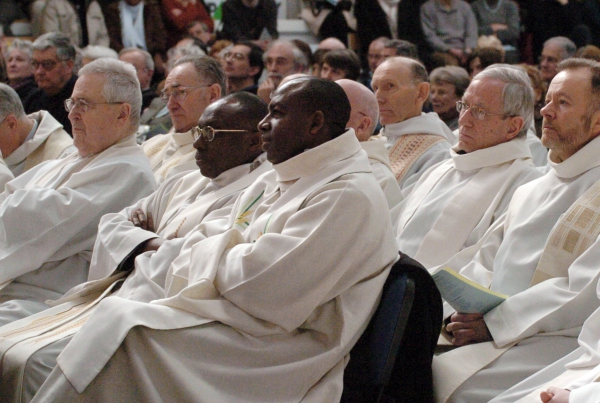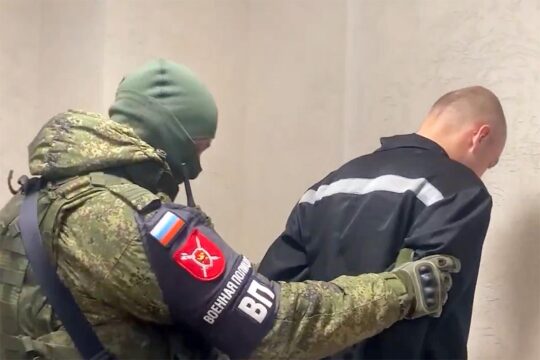A French court has dismissed the case against Father Wenceslas Munyeshyaka, the first case opened in France on the Rwandan genocide under the principle of universal competence. The announcement on October 2 has caused an outcry. The case of Father Wenceslas, a Catholic priest who attracted media attention even during the genocide as thousands of Tutsi refugees sought refuge in his Sainte Famille parish in Kigali, is both historic and symbolic.
Advocates for the priest, who is currently ministering in Gisors, northern France, have not hidden their satisfaction. Lawyer Florence Bourg says Judges Emmanuelle Ducos and Claude Choquet “did a lot of important work” when they took over judicial investigations in the case, relaunched in 2010 after an improvement in France’s diplomatic relations with Rwanda and the creation of a special unit to prosecute international crimes. Several rogatory commissions went to Rwanda for this investigation and investigating magistrates went there four times, during which they confronted the priest and witnesses by videoconference.
“It was Herculean, extremely rigorous work analysing the testimonies of hundreds of witnesses, which allowed them to establish that most of them were not credible,” Bourg told JusticeInfo.Net. Ever since complaints were filed and he was put under investigation in July 1995, Father Wenceslas has not ceased to plead his innocence. “My first thought goes to the parishioners of Sainte-Famille, the living and the dead, to whom I dedicated my life,” he told AFP shortly after the announcement that the case was dropped. “I only regret that human rights groups have ruined my life by supporting false testimonies.”
Strong reactions
There has been a strong outcry from civil parties. Eleven individuals and five associations representing Rwandan victims were approved as civil parties in the case. The associations are the International Federation for Human Rights (FIDH), Survie, the Collective of Civil Parties for Rwanda (CPCR), the League for Human Rights and the International League against Racism and Antisemitism (Licra).
“Numerous testimonies have implicated him for participating in the genocide, notably handing Tutsi refugees over to militia and clearly showing that he was collaborating with the genocidal authorities,” says FIDH.
“Twenty years of investigations, only to have the case dropped, it’s incomprehensible for the victims and civil parties that have been waiting for a trial since 1995,” said FIDH honorary president Patrick Baudoin. FIDH lawyer Emmanuel Daoud has announced she will appeal.
There is also consternation at the CPCR. Its president Alain Gauthier said the decision “undermines the credibility of French justice”. In the same statement, he appealed to the residual mechanism of the International Criminal Tribunal for Rwanda (ICTR), which referred the case to France in November 2007. In a message on Facebook, his organization urged the residual mechanism to take the case up again. In more measured tones, the Rwandan embassy in France also questioned in an October 6 statement the ICTR’s decision to transfer the case to France. Rwandan Ambassador Jacques Kabale expressed his “disappointment”, and his regret at the “exceptional slowness” with which this decision was handed down.
The judicial order dismissing the case, numbering 83 pages and including key witness statements, explains the decision. The judges paint a picture of a priest trying in the midst of genocide to lead a parish overwhelmed by Tutsi and Hutu refugees, who was certainly not a hero but against whom they say they cannot confirm damning charges. According to the judges, most witnesses say his behaviour was characterized by “talking to the attackers and then disappearing, leaving them to their fate, or watching the events passively”. One witness, Felix Kamanya, describes the priest going up to Interahamwe militia, gesticulating and then telling the refugees to “pray or leave”.
Good relations with the “genociders”
The investigation confirms that the priest carried a weapon and maintained good relations with the militia and genocidal authorities. But that, according to the judges, is not enough to prove his complicity. Because of these good relations, the College of Priests had entrusted him with security issues and, according to several priests, “despite appearances, Wenceslas Munyeshyaka did everything he could to ensure protection of the refugees, without regard for ethnicity, asking protection from the gendarmes, helping bring food and water, removing the handles on the doors to stop the militia entering the church. According to his ecclesiastical brethren, his ambiguous behaviour reflects the personality of a “fearful” man who also has a “strong ego”.
“The testimonies suggest that he put more energy into gaining the trust of the armed groups than of the refugees,” say the judges. The testimonies also leave little doubt about his opinions. For example, one priest of the diocese says he “used the term ‘Inyenzi’ for the Tutsis, although his own mother is Tutsi. The term is insulting and means cockroaches, or even that they must be killed”. Father Wenceslas used such terms without reflecting, which made him unpopular. Apparently he also gave inadequate comfort to the refugees. Rather than encouraging them to vanquish their fear, he was fatalist, saying there was “nothing to be done”. Tapped telephone conversations in France found that he continues to use the term ‘Inyenzi’ which, according to him, designates not Tutsis in general but the Rwandan Patriotic Front (RPF) currently in power in Rwanda.
Neither saint nor hero
The priest is far from being a saint or a hero, but that does not make him a criminal is what the judges are basically saying. “His expressions of opinion, his good relations with the military authorities could, as explained by AYN [pseudonym for a priest who was a protected witness] have been wrongly interpreted by the suffering refugees. The fact that he wore a bullet-proof vest and carried at least one firearm was final proof for some that he was on the killers’ side,” they say. But for the judges, “none of the allegations against him were sufficiently substantiated to amount to complicity in the planning of genocide or crimes against humanity”. His participation, either as an active player or “approving spectator” to the various attacks of the militia were not found to have been proven.
In France, Rwandan Pascal Simbikangwa was convicted on March 25, 2014 to 25 years in jail in the first and so far only judgment by a French court relating to the Rwandan genocide. The judgment is currently on appeal. A second Rwandan case is scheduled on May 10, 2016 before the Paris Court of Assizes. Two former mayors of Kabarondo commune in eastern Rwanda face charges of genocide and crimes against humanity allegedly committed in April 1994. Some 20 other Rwandan cases are under investigation by the French war crimes unit and should be concluded by the end of 2015 or in 2016, according to our sources.






